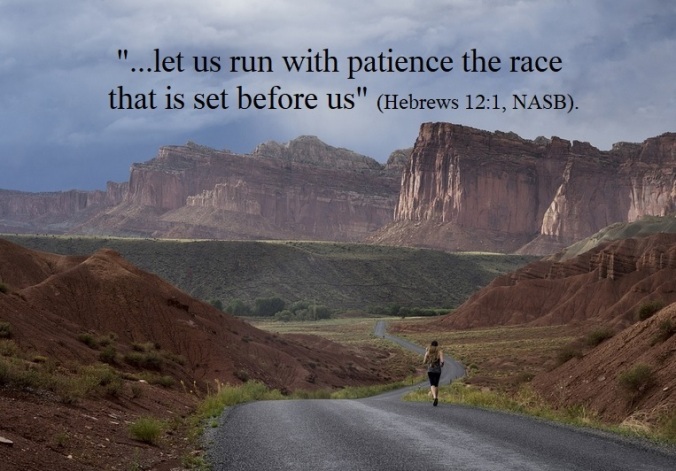“Go therefore and make disciples of all the nations…teaching them to observe all that I commanded you; and lo, I am with you always, even to the end of the age” (Matthew 28:19-20, NASB).
——————–
Contents:
1) The Prophecy About Josiah (Tom Edwards)
2) “Let Patience Have Its Perfect Work” (R.J. Evans)
3) How to Answer When You Don’t Know the Answer (Greg Gwin)
——————–

-1-
The Prophecy About Josiah
Tom Edwards
“Now behold, there came a man of God from Judah to Bethel by the word of the LORD, while Jeroboam was standing by the altar to burn incense. He cried against the altar by the word of the LORD, and said, ‘O altar, altar, thus says the LORD, “Behold, a son shall be born to the house of David, Josiah by name; and on you he shall sacrifice the priests of the high places who burn incense on you, and human bones shall be burned on you”’” (1 Kings 13:1-2).
Jeroboam, the first king of the Northern Kingdom of Israel, during the Divided Kingdom, had just set up “two golden calves,” which he referred to as “your gods, O Israel, that brought you up from the land of Egypt” (1 Kings 12:28). One of these was set up in Bethel, while the other was placed in Dan (v. 29). For these two locations were at the southern and northern extremities, respectively, of the northern kingdom; and Jeroboam placed them there as a matter of convenience for his people and so that they would not return to Jerusalem to worship and end up leaving Israel to side with Judah and even bring death to Jeroboam (vv. 26-27). It was also at that time in which Jeroboam made “houses on high places, and made priests from among all the people who were not of the sons of Levi” (v. 31). He even instituted his own feast for Israel and went up himself “to the altar which he had made in Bethel” to observe it “on the fifteenth day in the eighth month…to burn incense” (v. 33).
So it was at that same time when the man of God had also come to cry out against the altar and give the prophecy he did concerning it, which was mentioned above. And to confirm the truthfulness of that prophecy, the man of God also “gave a sign the same day, saying, ‘This is the sign which the LORD has spoken, “Behold, the altar shall be split apart and the ashes which are on it shall be poured out”’” (1 Kings 13:3) — and this came to pass that same day (v. 5)!
Though the work of a prophet was primarily declaring God’s message rather than predicting future events (consider the “prophet” Moses, for example, Acts 3:22), yet here in 1 Kings 13:2 is a foretelling of that which would come to pass about 352 years later. The prophecy is certainly not a mere generalization of what some anonymous person would do. Rather, it specifically mentions the fulfiller by name, along with the lineage he was of, and exactly what he would do.
The fulfillment of this prophecy is seen in 2 Kings 23: “…that altar that was at Bethel and the high place which Jeroboam the son of Nebat, who made Israel sin, had made, even that altar and the high place he broke down. Then he demolished its stones, ground them to dust, and burned the Asherah. Now when Josiah turned, he saw the graves that were there on the mountain, and he sent and took the stones from the graves and burned them on the altar and defiled it according to the word of the LORD which the man of God proclaimed, who proclaimed these things. Then he said, ‘what is this monument that I see?’ And the men of the city told him, ‘It is the grave of the man of God who came from Judah and proclaimed these things which you have done against the altar of Bethel.’ He said, ‘Let him alone; let no one disturb his bones.’ So they left his bones undisturbed with the bones of the prophet who came from Samaria. Josiah also removed all the houses of the high places which were in the cities of Samaria, which the kings of Israel had made provoking the LORD; and he did to them just as he had done in Bethel. All the priests of the high places who were there he slaughtered on the altars and burned human bones on them; then he return to Jerusalem” (vv. 15-20).
The previous verses in 2 Kings 23 also speak of more of the idolatrous practices that Josiah brought to an end.
Josiah was born about 648 B.C. He not only became Judah’s 16th king, but also reigned for 31 years as one of its best.
Isn’t it something how God has the ability to know in advance of even the specific details of future events — and has proven that through prophecies and their fulfillments! In this case of Josiah, the prophecy was made about three and a half centuries before it came to pass – but it did so, just as the Lord said it would!
(All Scripture from the NASB.)
——————–

-2-
“Let Patience Have Its Perfect Work”
R.J. Evans
“My brethren, count it all joy when you fall into various trials, knowing that the testing of your faith produces patience. But let patience have its perfect work, that you may be perfect and complete, lacking nothing” (James 1:2-4).
Patience, a fruit of the Spirit, has been described as love and endurance under pressure. Patience is a characteristic that is longsuffering and does not retaliate; a willingness to wait; to expect; to hope for.
We are not born with patience. We need only to hear a baby cry for their immediate needs or hear a child selfishly say, “No!” or “Mine!” However, it doesn’t take much insight to see that maturity and strength under pressure is much more difficult than it is to return evil for evil and be swift to strike back. It takes courage, strength, and love not to return injury and insult to others. An old Chinese proverb says: “Patience is power. With time and patience the mulberry leaf becomes a silk gown.” Patience is the ability to endure to the end.
Patience is a fruit of the Spirit that is to be demonstrated in our relationships with one another. Love suffers (endures) long, and we are called upon to be patient and forbearing with one another (1 Cor. 13:4; Eph. 4:2; Col. 3:12). Love, with patience, hopes all things. Patience is not passive–it is consecrated active faith and strength.
The Hebrew writer tells us to run the race set before us with patience (Heb. 12:1). Truly, life is much like a race, and patience keeps doing God’s will regardless of the difficulties or the discouragements. The New Testament word for patience means “to abide under.” We are reminded of the great patience of the prophets and Job in James 5:10-11. It does not suggest giving up, compromising, or becoming complacent. Patience is keeping the course in spite of our circumstances.
Patience has a calm anticipation of hope. The New Testament speaks of the patience of hope (Rom. 5:4; 8:25). Hope produces patience. When we love and have hope in God, we are inclined to be more patient. If we believe in the promises of God, we can patiently wait for them. The hope, power, and blessings of the gospel fill us with patience.
Pessimism is often due to a lack of patience. We look around and see awful conditions and think God is too slow (read the book of Habakkuk as an example of this). Some lose their faith and hope, but true patience can wait, endure, and persevere. Let us not be like the one who prayed in this manner–”Lord, give me patience, and give it to me right now!” Therefore, LET PATIENCE HAVE ITS PERFECT WORK.
— via bulletin of the Southside church of Christ, 10/15/17
——————–

-3-
How to Answer When You Don’t Know the Answer
Greg Gwin
No one likes to be ‘put on the spot.’ We dread the possibility of being asked questions that we can’t answer. This is especially true when the questions are about religion.
Perhaps one of the biggest hindrances to spreading the gospel is this fear of being asked questions. If you feel uneasy about your level of Bible knowledge, you may try to avoid potentially embarrassing situations — sidestepping any discussion that might turn to religious themes. Unfortunately this keeps us from many ‘open doors’ for personal evangelism.
Since no one has ALL of the answers, it is important for us to know what to do when questions arise that ‘stump’ us. Here are some suggestions:
1) Realize — and be ready to explain — that there are simply some pieces of information that we do not have because God has not supplied them. “The secret things belong unto the Lord our God” (Deut. 29:29). But, we have “all truth” (John 16:12-13), and “all things that pertain unto life and godliness” (2 Pet. 1:3). So, every piece of essential information has been supplied.
2) When you do not know the answer, it is best to simply admit it. This is much better than trying to ‘bluff’ your way through. Humbly say, “I don’t know.” But do not fail to add: “I’ll find out and get back to you on that.” Following this procedure will actually provide additional opportunities to teach. It keeps the door open to further discussions.
3) Study, study, study! You will feel less intimidated and more willing to engage in biblical discussions if you build your confidence level by increasing your Bible knowledge. Pay special attention to areas where you presently feel ‘weak’ in knowledge and understanding. Be well prepared to deal with popular denominational errors. Be ready to explain ‘issues’ that divide brethren.
4) Never shy away from a chance to talk about God and His Word. The more you do this, the easier it will become. Every such conversation serves as an opportunity for you to ‘sharpen your sword.’
— Via the bulletin of the Collegevue church of Christ
——————–
The Steps That Lead to Eternal Salvation
1) Hear the gospel, for that is how faith comes (Rom. 10:17; John 20:30,31).
2) Believe in the deity of Christ (John 8:24; John 3:18).
3) Repent of sins (Luke 13:5; Acts 17:30).
4) Confess faith in Christ (Rom. 10:9,10; Acts 8:36-38).
5) Be baptized in water for the remission of sins (Mark 16:16; Acts 2:38; 22:16; Rom. 6:3,4; Gal. 3:26,27; 1 Pet. 3:21).
6) Continue in the faith, living for the Lord; for, if not, salvation can be lost (Heb. 10:36-39; Rev. 2:10; 2 Pet. 2:20-22).
——————–
Tebeau Street
CHURCH OF CHRIST
1402 Tebeau Street, Waycross, GA 31501
Sunday services: 9:00 a.m. (Bible class); 10 a.m. & 5 p.m. (worship)
Wednesday: 7 p.m. (Bible class)
evangelist/editor: Tom Edwards (912) 281-9917
Tom@ThomasTEdwards.com
http://thomastedwards.com/go (Older version of Gospel Observer website without pictures, but back to March 1990)
http://tebeaustreetchurchofchrist.org/
http://ThomasTEdwards.com/audioser.html (audio sermons)



